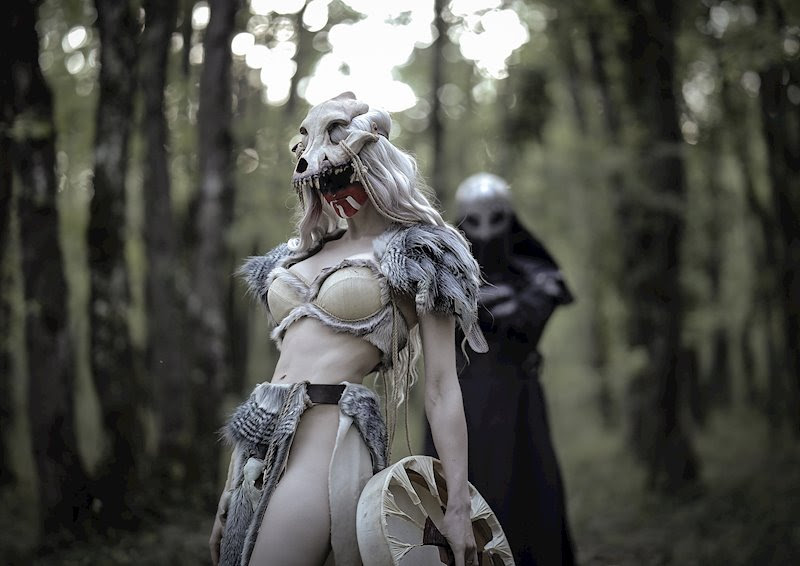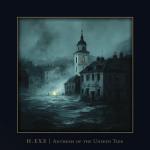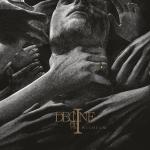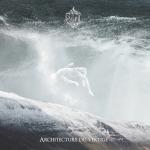The electro-pagan duo Eihwar, who blend a Viking universe with dancefloor 'mouth-breaking', emerged from Ginnungagap, the primordial void of Norse mythology, barely a year ago. The success was dazzling: from the stages of the Nuits des Sorcières, Eihwar found themselves propelled by Season of Mist, will release a first album in the autumn and made audiences dance at the Wave Gotik Treffen Festival and Hellfest.
We caught up with the duo just moments after their triumphant concert in front of an early-morning packed crowd (we'll tell you all about it soon). Asrunn and Mark, the monstrous alter egos of their 'human hosts', tell us with spontaneity and generosity the story of their first dance steps, filled with a chaotic energy full of life.
How are you feeling after your concert this morning? Have you taken your head out of the clouds?
Mark: It's getting off to a slow start...
Asrunn: No, I still feel like getting a bit high up there, it was so cool! I really wasn't expecting that...
What was your first impression when you arrived on stage and saw all the people there for you?
Asrunn: I looked over at the Season of Mist community manager who was filming our entrance: when our intro drone started blasting and we heard all these people screaming, I turned to her like "aaah what's going on!". Then there was more screaming when we got on stage and I thought "OK, this is going to be fun!". It was going to be like a concert in our living room with all our friends, except there were 12,000 of them... it's a big living room!
Can you tell us a little about how this project came about? It seems to me that the story is atypical...
Asrunn: In fact, we didn't plan anything at all. It was an artistic spurt. Mark composed our first track, The Forge, in just a few hours, put headphones on my ears and said "sing". I hadn't even heard the song, so I went straight into a trance and we recorded the vocal lines in one go.
Mark: I started working on it around 11am / noon on 14 or 15 February 2023, mastered it and posted it on YouTube that same evening, around 6pm. We didn't do any promotion: I think I sent it to five or ten friends maximum, but we never talked about it. We kind of forgot about it for a week...
Asrunn: Not even a week! For three days! After three days you said to me, "Hey, have you seen what's going on with this track?".
Mark: My phone started flashing all over the place with more notifications than I'd ever seen before! That's how the project came about.
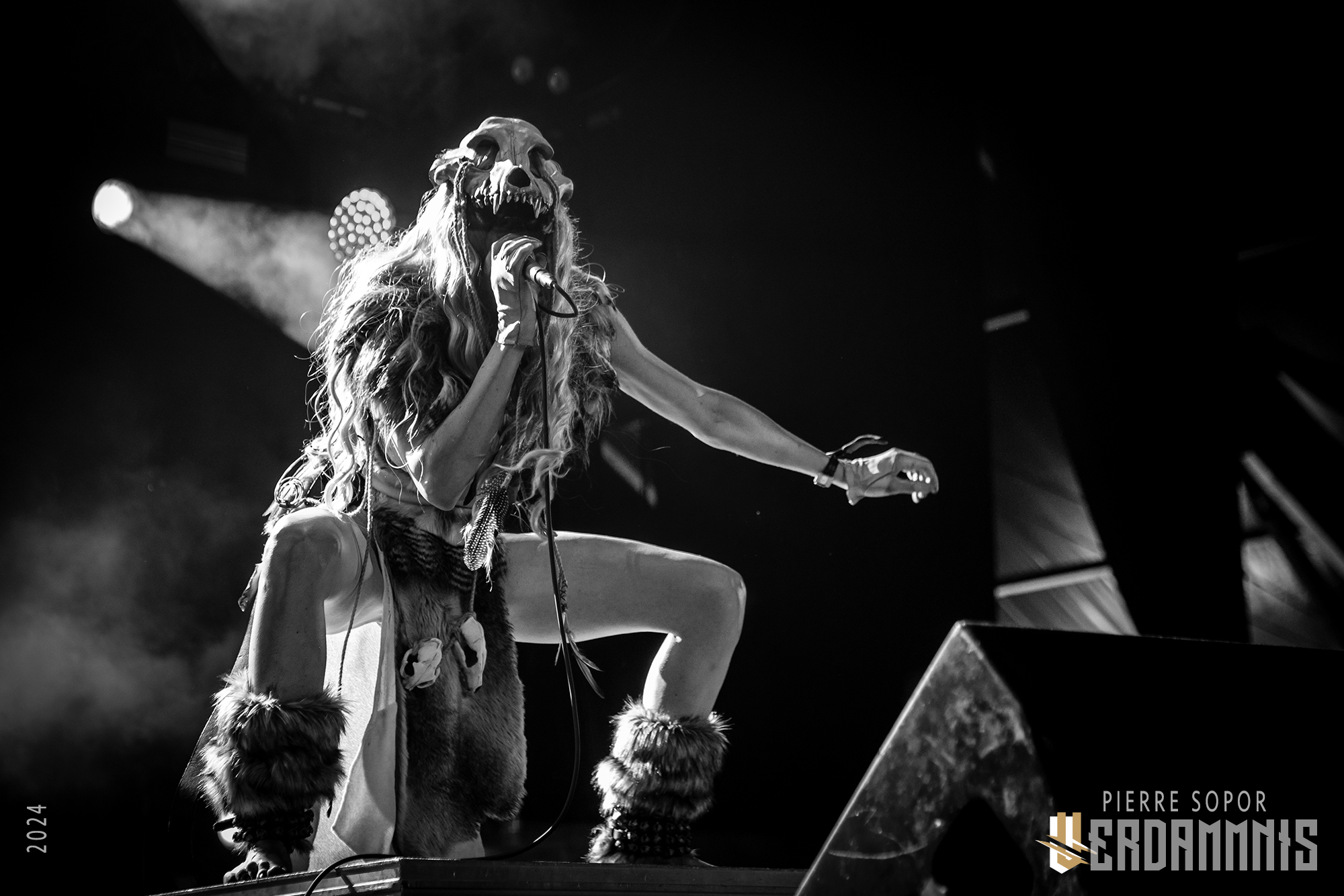
In your other projects, you also play characters. Do you see your musical creation solely in terms of these masks and roles?
Mark: We've had a number of projects before Eihwar but it's more interesting for us that people discover us for what we do today rather than what we were, or for the idea they might have of what we've done previously. It allows them to discover our music without any preconceptions.
Asrunn: That's why we don't talk about who we are in real life. It gives us greater freedom to be behind these 'monsters', while leaving the humans we are and their history to one side.
Mark: It gives greater freedom to both our human and monstrous parts! The monsters can mess things up no end this way!
Your world inevitably gives life to a form of narrative. How do you develop this narrative aspect?
Mark: It's something the public really wants, people want to understand the things that drive us. Asrunn talked about trance and it's true that when she records, she puts herself in a modified state of consciousness. She very often records as a one-shot, as is the case with Völva's Chant. We don't re-record afterwards, which is sometimes a bit painful because we didn't have the right microphone, for example, but we take this approach and keep the take anyway. Initially, we thought it was better to let people listen to the music without giving any explanations. Now, with the album, it's time to put things down and a booklet of about twenty pages will accompany it. We can't translate Asrunn's trance-like states into words, but we've brought out the ideas behind the lyrics, the values, the messages, the background. This allows us to develop this form of narrative in a passive way, for example to understand what lies behind the idea of the Ragnarök, the Berserkr or the song of the Völva.
A lot of bands working with 'Viking universes' emphasise the historical aspect. Have you delved into this aspect or do you prefer fantasy?
Asrunn: Our approach isn't historical at all, we're inspired by the period and what it represents, that's all.
Mark: That's right, and we'd like to wish good luck to those who have a historical approach! We don't know a lot about the music of the Viking period. There's a lot of fantasy out there, a lot of assumptions. We think that the guys must have communicated with each other using drums, we imagine that they must have done this or that because we've found a bone flute here and a lyre there, but in reality we have no idea what melodies and rhythms might have been played. Ethnomusicological research doesn't allow us to be sure of anything. We can try to combine the remnants of oral traditions with experiments using instruments of which traces have been found... but that's not our approach. We create new music simply by drawing inspiration from the great symbols of the era, its myths and the legends that have been forged over time
Asrunn: In short, everything we've fantasised about the Vikings in our modern era: their bravery, their daring, their speed, their adaptability... We're artists in our own right, but we leave the historical research to the ethnomusicologists.
Mark: Until proven otherwise, there was no such thing as a berserkr chick! It didn't exist. We thought "who cares, a berserkr chick is so cool"!
Your music is very fun, very uninhibited, which contrasts both with what we often hear in the pagan/folk genre and with your previous work. Was it a desire to break with your habits or to shake up this kind of universe?
Asrunn: Once again, we didn't really plan anything! It just came out of the blue, so it's hard to say what we wanted!
Mark: It's fair to say that Eihwar was born in the context of the Nuits des Sorcières, of which you've been valued partners since the very beginning! What are the Nuits des Sorcières? I have the impression, and we've been told that, that they're a bit like the new gothic parties. In the 90s and 2000s, we were listening to Project Pitchfork and company, and danced to gothic and industrial after parties. Maybe you, who live in Paris, will tell us that it still exists... But we have the impression that this movement has become confidential. It does exist in Leipzig, we just came back from the Wave Gotik Treffen Festival and the community there is very much alive, but in France it's not really what it used to be... We see La Nuit des Sorcières as the heir to those parties.
Anyway, someone came to ask my 'human host' to organise a more festive and danceable after-party, like a gothic party. So he went looking for pagan, Nordic and dancing stuff... and that was tough! There were a few things, but on the whole, if you want to mix folk and dance music, you soon end up with Celtic stuff that's totally outside the Nordic universe, which is mainly approached from an atmospheric angle. There are a few projects, of course, like Danheim, who do 'Viking' electro. He was one of the first to try sidechains, i.e. volume effects that 'rise' between kicks, over tagelharpas or choirs. My 'human host' thought it was really cool, but it still wasn't quite danceable enough for an after party, even remixed, and neither were the remixes he'd tried using early Heilung...
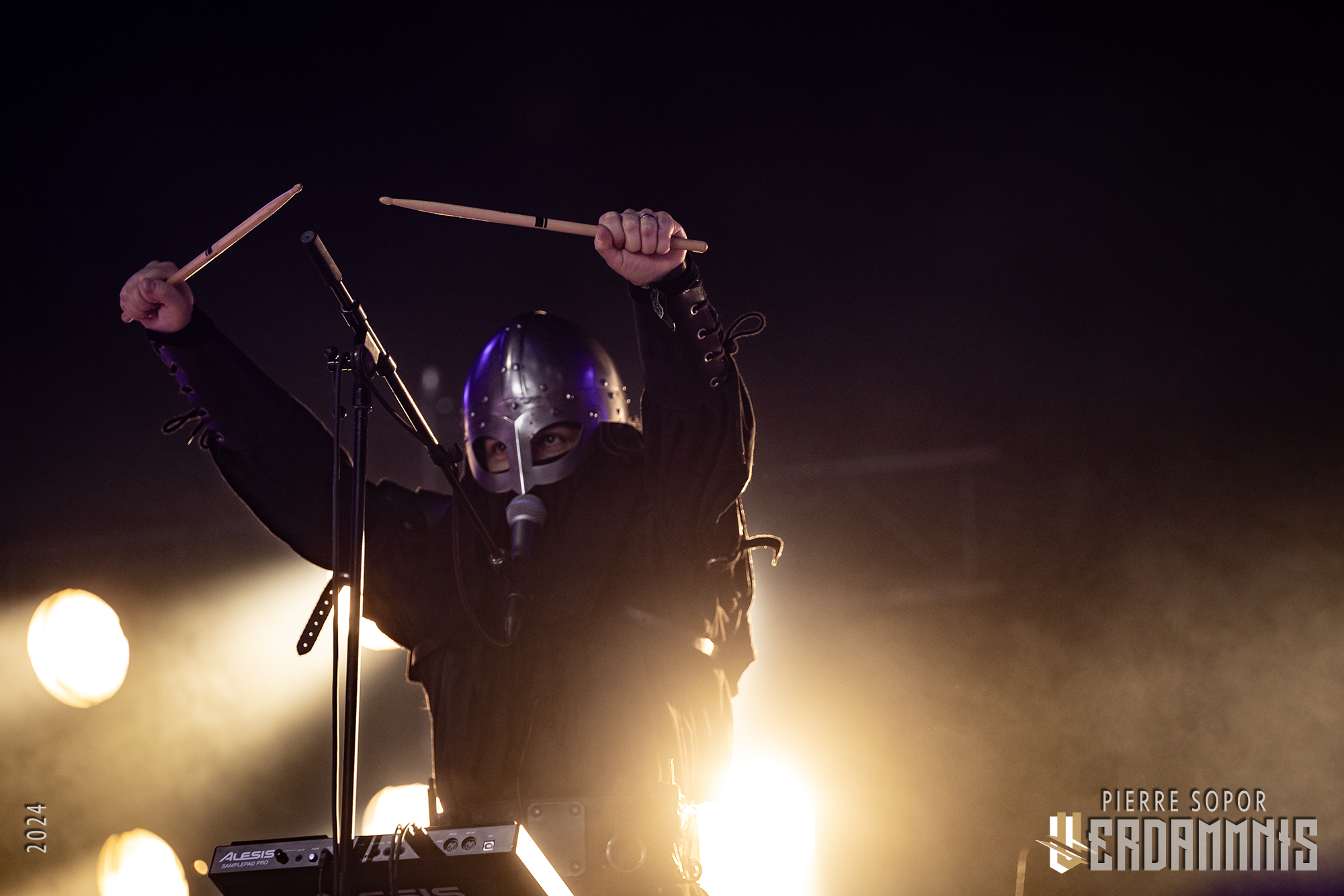
One day, and here's the thing we've never talked about before, my host thought it would be quicker to make some new tracks rather than try and remix all those pagan bands! We wanted something that would kick ass, we wanted something that would break your mouth on the dancefloor. I happen to have a bit of a background in industrial music... So we thought we'd go for it, and not with the back of the spoon! We want real kicks! We want it to be nasty and danceable, while trying to retain the pagan spirit, imagery and sounds. Even though we emulate a lot of instruments, our music is hybrid and also uses a lot of acoustic sounds, particularly percussion. When you listen to Eihwar, there are things that you might think are natural but are actually artificial, and vice versa. So anything goes, because anything is possible with electronics. And to get you into a trance, clearly, the low frequencies of the electro kicks and basses are incredibly effective!
You were very well received both at WGT and this morning at Hellfest. Were there any people who were annoyed by your rather sacrilegious approach?
Asrunn: Oh yes! Of course they were!
Mark: Some people seem to need to identify with a certain kind of historical authenticity. It's quite funny to see them asking Conan the Barbarian or Lord of the Rings to fulfil the function of historical documentaries!
Asrunn: Once again, there are historians on one side and musicians on the other, and you shouldn't mistake one for the other.
Mark: We don't want to restrict ourselves to historical limitations, if only for idiomatic reasons: very often, historical instruments have their limits. You can't change drone 15 times in the same piece. You've got three strings and you've got to get on with it, you've got to stay in the same key all the time. I love that acoustic sound, I love the bands that use it, but when I'm composing I prefer to be able to play all the notes I want, when I want, and I'm not going to deny myself a modulation that creates emotion on a chorus, for example. We need instruments that have no limits. If we want to play on the twelve chromatisms of the tempered scale, we do it even if the instrument doesn't do it. We sample it and modify it with the computer to get all the notes we want.
From a personal point of view, when you've been working for a long time on more 'serious' projects that have remained confidential, how do you feel when something you've written in a day starts to take off like that?
Asrunn: Do I have the right to answer honestly? Well, I'm saying this to you... but I don't know if it's a good idea to publish it! It was very hard for me at the beginning. I worked a lot on my vocal technique, I'm a singer who honed her instrument for years and I took a certain pride in it, maybe even a certain existential value. And indeed, to do things that seem so technically simple to me and to see them be so successful... I wasn't expecting that. It's as if it didn't really have any value because I wasn't doing my job as a singer in the way I'd imagined I had to do it for it to have any value. I was kind of disappointed that my previous, more technical projects hadn't been as well received. In fact, Eihwar cured me of a lot of things: music has to be lived, it has to be felt, and people don't give a damn about what's demonstrative. That's just musicians' egos expressing themselves. I've come to appreciate the value of instinct and of simple, primal singing. It's been a long process of acceptance, but for me it's spiritually very gratifying.
I think it was Picasso who said that he became rich when he started doing 'shitty' things... I'm sure that required a bit of perspective.
Asrunn: There was a bit of that at the start! I had to realise that on stage, when I'm Asrunn, I'm sending this energy and everything else apart from my voice out to the audience. I had to have a lot of discussions with Mark to get him to open my eyes to the importance I had in this project, because I was under the impression that I wasn't doing anything: he was composing, I was just laying down a vocal line and that was that! But it's so much more than that in reality! Now I've taken over the role and I really embrace Eihwar with a lot of joy, love and gratitude... and I'm the first fan of this project!
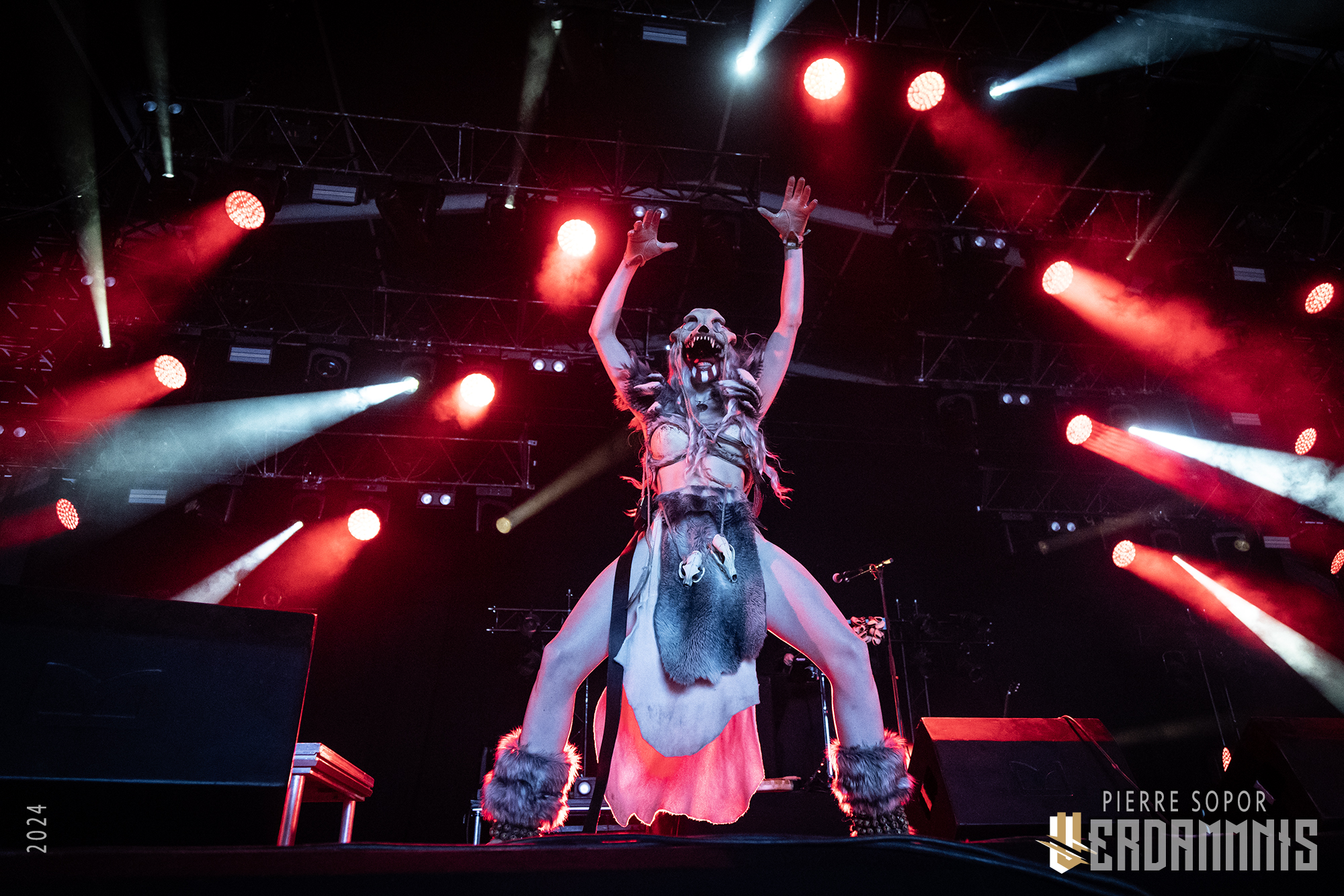
What I like about the parallel with Picasso is that we had the same artistic process as he did of detaching ourselves from technique to rediscover the uninhibited artistic outpouring of childhood. That was Picasso's aim, to rediscover the freshness of a child's line that has no use for academic rules, perspective or criticism. It was a long process for the painter, and as far as I'm concerned, I also had to transgress my own limits and my own feeling of illegitimacy in order to fully embrace this raw emotion, which propels me on stage and brings me unprecedented joy. To conclude, I've heard and read criticism of Eihwar as a purely commercial, soulless, 'insincere' band, when in truth it's the most sincere artistic project of any discipline I've ever done.
Mark: This project teaches us that you're not just an artist in one field. Art is above all a way of looking at the world, and whatever you do, there's always a synthesis of everything you've experienced that's sublimated and crystallised, and I think that in the slightest line of Asrunn's vocals, even if she feels that all her virtuosity can't be expressed in just three notes, in reality it can. There's a presence, a charisma, an experience, an anchoring. For my part, if I can write a song in a day, it's because I've been writing every day for 30 years. The more time goes by, the more you detach yourself from technique and move towards instinct.
It's easy to imagine that such rapid success can go to your head, but paradoxically for you it must have been quite a lesson in humility!
Asrunn: Absolutely, because once again, when things seem easy, you tend not to value things as much. What really helped me get over that initial mixed feeling was when I realised that I'd had to work for fifteen years at my job as a singer and frontwoman for it to seem easy and natural today.
Mark: It has to be said that we're also very hard on ourselves, we're never satisfied! But I think modern psychology explains that very well, it's the Dunning-Kruger syndrome: the more you perfect yourself in something, the more you imagine the immensity of what you don't know!
Asrunn: "What I know is that I know nothing", said Socrates!
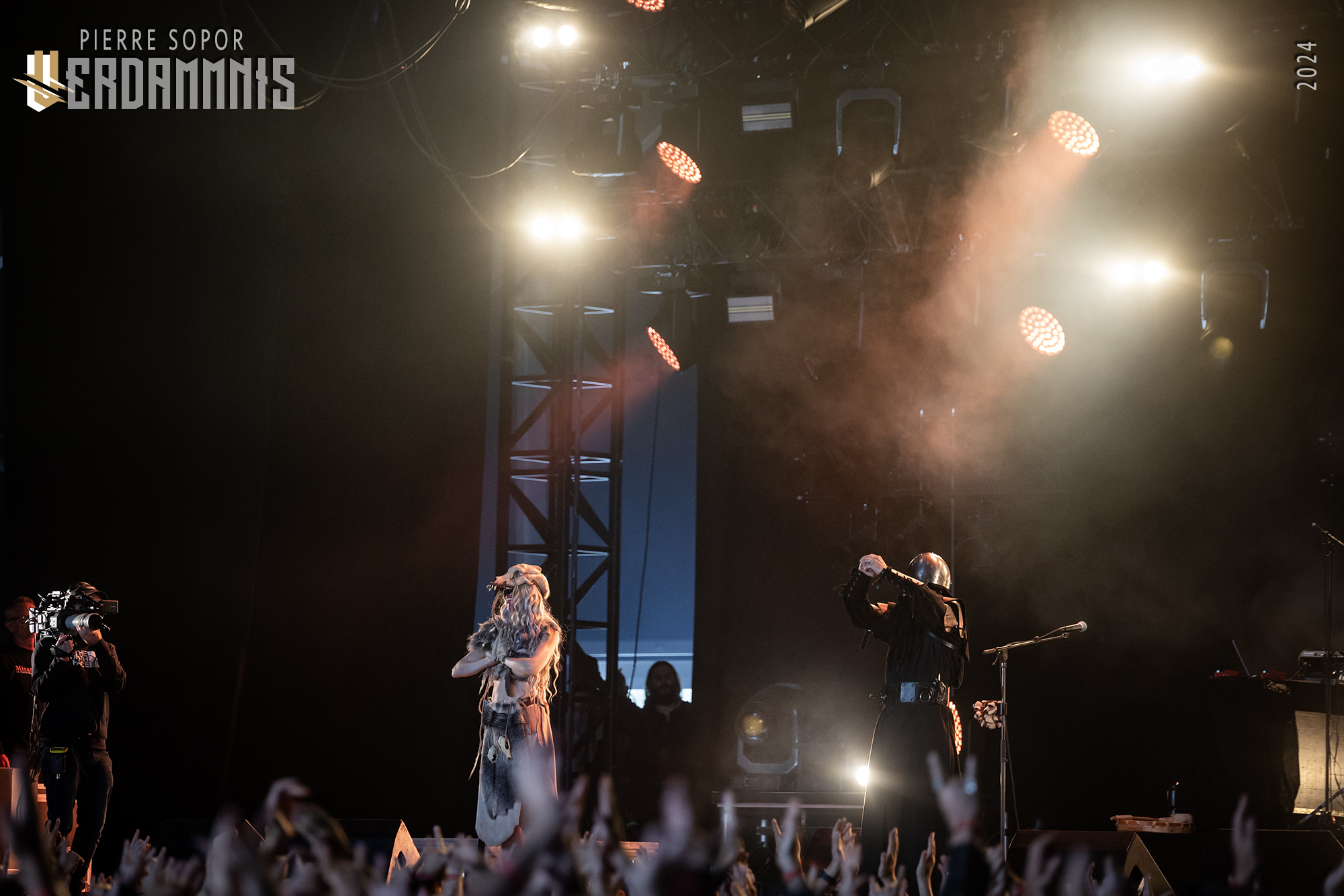
Mark: And then, still on the subject of humility, you realise that in the end you're only a small part of a band's success. Looking at the statistics at the beginning, when there was really no promotion, we wondered "but how many times do people listen to our songs?". There's hours and hours to go... I thought, "What the hell, people have listened to Eihwar for 4,000 hours this week? How is that possible?". This project was powered by algorithms because people listen to it over and over again.
Asrunn: And this question of forced humility is also directly correlated to the idea of the relationship with childhood mentioned earlier: we create in Eihwar like a child who draws a picture without thinking too much about it, just for the pleasure of creating, and then it's either well received or it's not. In any case, there's this sort of life impulse in this project. The fact that I'm dancing and drumming like mad (to the point where I break my drum every three concerts) is a way of sublimating, in the Freudian sense of the word, the anger that my human host feels on a daily basis in this world that she doesn't understand and that doesn't understand her. It's my way of reclaiming my freedom as a woman, giving power back to my inner child, that thing that heals us, in fact. When I go on stage with Eihwar afterwards, I sleep well for three weeks! And that can't happen if your ego is in charge.

